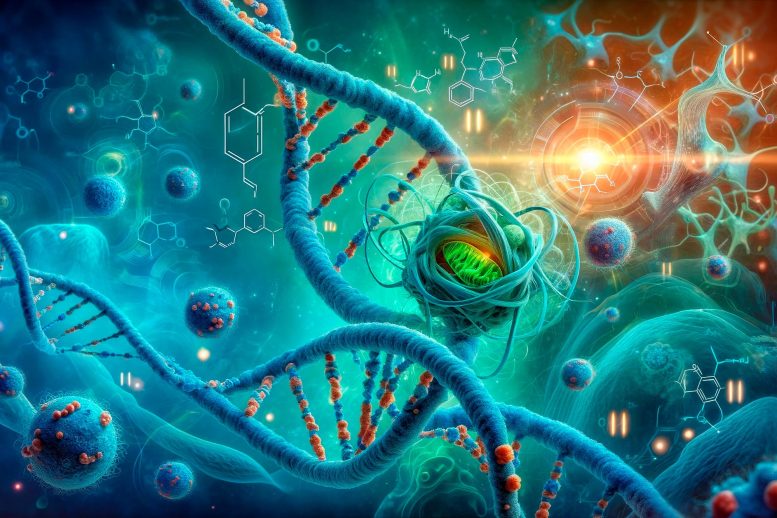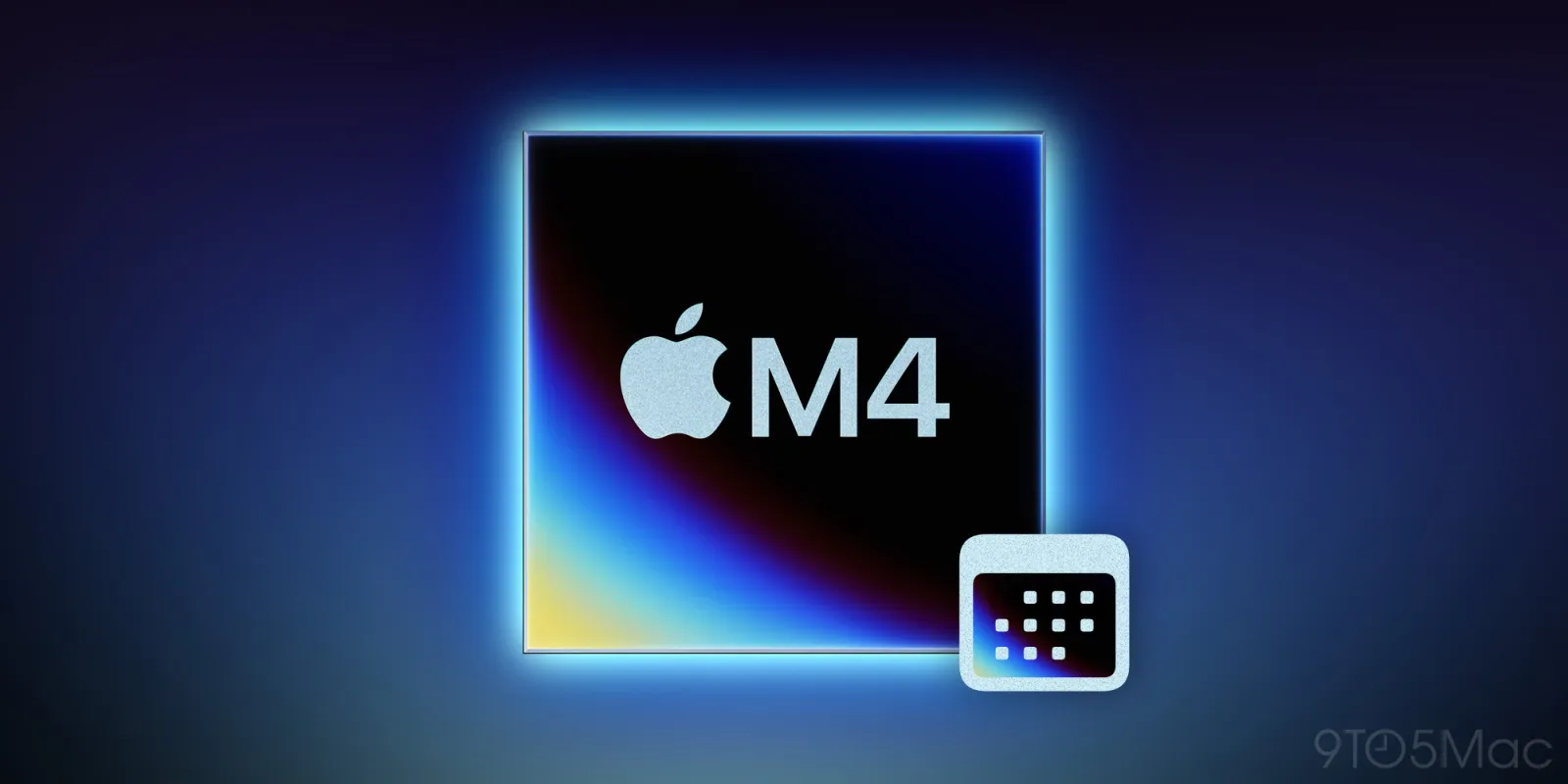 Scientists have found that mutations in mitochondrial DNA may indicate a patient’s response to immunotherapy, potentially leading to more personalized and effective cancer treatments. Credit: SciTechDaily.com A recent study indicates that mitochondrial DNA mutations can serve as crucial indicators of a patient’s likelihood to respond to immunotherapy, thus altering the landscape of approaches to cancer treatment. Cancer Research UK-funded scientists have made a significant finding that could aid in identifying patients who are up to 2.5 times more likely to respond to existing cancer drugs. Researchers at the Cancer Research UK Scotland Institute and Memorial Sloan Kettering Cancer Centre in the USA have altered the DNA of mitochondria – the energy-producing structures found in every cell. Their findings demonstrate that creating mutations in specific parts of this DNA influences the effectiveness of cancer response to immunotherapy, which utilizes the body’s natural defenses to target cancer cells. This discovery presents new opportunities to identify patients who could benefit the most from immunotherapy by testing for these mitochondrial DNA mutations. It has been observed that half of all cancers exhibit mitochondrial DNA (mtDNA) mutations, and this discovery shows for the first time that these mutations could be leveraged to improve cancer treatment. In the future, combining treatments that emulate the effects of these mutations with immunotherapy may enhance the success rate of treatment for various cancer types.
Scientists have found that mutations in mitochondrial DNA may indicate a patient’s response to immunotherapy, potentially leading to more personalized and effective cancer treatments. Credit: SciTechDaily.com A recent study indicates that mitochondrial DNA mutations can serve as crucial indicators of a patient’s likelihood to respond to immunotherapy, thus altering the landscape of approaches to cancer treatment. Cancer Research UK-funded scientists have made a significant finding that could aid in identifying patients who are up to 2.5 times more likely to respond to existing cancer drugs. Researchers at the Cancer Research UK Scotland Institute and Memorial Sloan Kettering Cancer Centre in the USA have altered the DNA of mitochondria – the energy-producing structures found in every cell. Their findings demonstrate that creating mutations in specific parts of this DNA influences the effectiveness of cancer response to immunotherapy, which utilizes the body’s natural defenses to target cancer cells. This discovery presents new opportunities to identify patients who could benefit the most from immunotherapy by testing for these mitochondrial DNA mutations. It has been observed that half of all cancers exhibit mitochondrial DNA (mtDNA) mutations, and this discovery shows for the first time that these mutations could be leveraged to improve cancer treatment. In the future, combining treatments that emulate the effects of these mutations with immunotherapy may enhance the success rate of treatment for various cancer types.
In a paper published in the journal Nature Cancer on January 29th, the scientists demonstrate a direct connection between mitochondrial DNA (mtDNA) mutations and response to cancer treatment. Surprisingly, they found that tumors with high levels of mtDNA mutations are up to 2.5 times more likely to respond to treatment with an immunotherapy drug called nivolumab. Nivolumab operates by releasing a “brake” on the immune system to combat cancer cells and is currently utilized in the treatment of several cancer types, including melanoma, lung cancer, liver cancer, and bowel cancer. The researchers believe that mitochondrial DNA mutations could potentially be routinely tested for in the future, allowing doctors to ascertain which patients will benefit most from immunotherapy before initiating treatment. Additionally, the researchers believe that simulating the effects of mitochondrial DNA mutations could render treatment-resistant cancers receptive to immunotherapy, thereby enabling a greater number of cancer patients to benefit from this pioneering treatment. The technology underlying this discovery is currently the subject of patents filed by Cancer Research Horizons, Cancer Research UK’s innovation arm. These patents will facilitate the introduction of the technology to the market, enabling the development of new treatments that disrupt the energy sources used by cancer to disseminate and proliferate. To date, Cancer Research Horizons has brought 11 new cancer drugs to market, which have been utilized in over six million courses of cancer treatment worldwide. Dr. Payam Gammage, Group Leader at the Cancer Research UK Scotland Institute and the University of Glasgow and co-lead author of the study, remarked, “Cancer is a disease of our own bodies. Because cancer cells can look similar to healthy cells on the outside, getting our immune systems to recognize and destroy cancer cells is a complicated task. More than half of cancers have mutations in their mitochondrial DNA. But when we engineered these mutations in the lab, we found that tumors which have the most mutated mitochondrial DNA are far more sensitive to immunotherapy. Thanks to this research, we now have a powerful tool that gives us an entirely new approach to stopping cancer in its tracks.” Dr. Ed Reznik, Assistant Attending Computational Oncologist at Memorial Sloan Kettering Cancer Center and co-lead author of the study, added, “Mitochondrial DNA has been an enigma for decades. Every cell has thousands of copies and until now it’s been very challenging to engineer mutations consistently to study how mtDNA mutations affect cancer. For the first time, we can see exactly what mitochondrial DNA mutations do when we create them in the lab. But what took us by surprise is how much the cells around the tumor are affected – which we can exploit to make the tumor vulnerable to treatment. This research opens up an entire world where we can rewire the energy sources of tumors – and potentially short-circuit them to beat cancer sooner.” Dr. Iain Foulkes, Executive Director of Research and Innovation at Cancer Research UK and CEO of Cancer Research Horizons, commented, “After years of painstaking lab research funded by Cancer Research UK, we have identified a vital weak spot in cancer. Mitochondrial DNA mutations are a common part of cancer and this amazing discovery has limitless potential. Treatments which exploit over-burdened mitochondria in cancer are now possible. Now we need clinical trials to see which combinations work best in patients. Through our innovation engine Cancer Research Horizons, we’re planning to accelerate this discovery into the clinic and ensure as many patients as possible can benefit.” The paper is set to be published in Nature Cancer on January 29th.
Reference: “Mitochondrial DNA mutations drive aerobic glycolysis to enhance checkpoint blockade in melanoma” 29 January 2024, Nature Cancer.
DOI: 10.1038/s43018-023-00721-w
Cancer Immunotherapy Treatment 2.5x More Effective With Mitochondrial DNA Mutations














